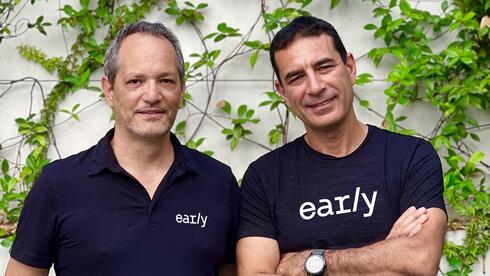Early, a pioneer in the realm of generative AI for code quality enhancement, recently announced a significant milestone with the acquisition of $5 million in Seed funding, led by Zeev Ventures. This funding, supported also by Dynamic Loop Capital, positions Early to further develop its AI-powered solution aimed at improving code quality through automated testing. The company’s technology is not just an additive tool; it acts as a Test AI agent that generates working tests to help developers identify and rectify bugs early in the software development cycle. Since its soft launch in August, Early has successfully produced over 30,000 unit tests, gaining traction among more than 3,000 developers who are leveraging its capabilities to refine their code quality.
The demand for robust code quality practices has been underscored by high-profile industry incidents, such as the recent CrowdStrike outage, which illustrated how a seemingly minor out-of-bounds exception resulted in staggering financial losses. This highlights the critical importance of improved code testing practices and efficient bug detection to mitigate future risks. Consequently, development practices must evolve to keep pace with technological advancements, and solutions like Early’s offer a pathway to achieving this.
Early’s innovative approach utilizes generative AI to automate the testing processes, enabling developers to detect bugs right from the start of their projects. By analyzing code and generating comprehensive unit test suites, Early’s technology validates these tests to ensure they can effectively protect code integrity and catch potential bugs before they enter production. This proactive engagement not only enhances product reliability but also considerably shortens the development lifecycle.
Founded by Sharon Barr and Lior Froimavich at the end of 2023, Early is supported by a strong leadership team with extensive backgrounds in technology and product development. Sharon Barr, serving as CEO, possesses rich experience from her previous roles, including Global Technology and Product Officer at EY and VP of Software Engineering at Roche. Meanwhile, CTO Lior Froimavich’s expertise includes leading product development at EY’s largest data platform and significant R&D experience at various tech firms. Under their leadership, Early aims to redefine how development teams approach testing and code quality management.
Sharon Barr emphasizes the evolving landscape of software development, pointing out that while technology continues to advance, the challenge of maintaining code quality persists. Unlike tools such as GitHub Copilot, which assist developers in writing test code, Early’s platform assumes full responsibility for test generation, positioning itself as an AI test engineer in collaboration with every developer. This distinction allows developers to concentrate on creating innovative applications instead of getting bogged down by the intricacies of testing. The ultimate goal is clear: safeguard companies from potential losses amounting to billions by catching bugs at the earliest possible stage, facilitating a more rapid software development process.
However, despite the promise that generative AI holds, developers and organizations might encounter specific challenges related to automation. Common issues include errors during the automation process, API rate limits that can hinder performance, and integration challenges that can disrupt workflows.
To address these problems effectively, organizations should adopt a systematic approach. Firstly, when automation errors occur, developers should review the error logs meticulously. These logs often provide clues to the nature of the issue, be it a syntax error, misconfigured settings, or a mismatch in expected data formats. Ensuring the code snippets or scripts are aligned with the anticipated inputs and outputs is crucial. It is essential to foster a culture of testing revisions incrementally, verifying that each change yields the expected outcome.
For API rate limit issues, understanding how APIs manage request volumes is critical. Developers should read the API documentation thoroughly, which often outlines specific rate limits and best practices for optimization. Implementing backoff strategies is an effective way to manage request rates. By slowing down requests during periods of high demand, developers can prevent being throttled by the API provider.
Another common dilemma involves integration issues, particularly when multiple systems are interlinked. Regular communication with each system’s API improvements and updates is necessary to anticipate potential conflicts. Using an integration testing framework can help ensure that as systems evolve, their interactions do not lead to failures. These frameworks allow teams to simulate various integration scenarios, offering insights into how modifications might affect the overall architecture.
The risks associated with delayed error resolution can be significant, impacting productivity and leading to potential financial implications. Therefore, investing in tools and methodologies that facilitate prompt bug fixes translates to tangible returns—improvement in developer efficiency, enhanced software reliability, and a reduction in the costs associated with post-release fixes.
By proactively addressing common automation pitfalls and implementing systematic troubleshooting methods, organizations can significantly enhance their software development processes. Early’s innovative approach underscores the potential to revolutionize code quality management through automation, thus providing developers with the tools they need to focus on innovation.
In conclusion, the advent of generative AI represents a transformative shift in the software development landscape. By reducing the complexity of testing and empowering developers to focus on creative aspects of their work, solutions like Early offer a promising path to streamlined workflows and improved code quality. Investing in quality assurance now translates into long-term savings and efficiency gains, ultimately driving innovation across the tech industry.
FlowMind AI Insight: As organizations increasingly adopt generative AI solutions like Early, it’s essential to recognize that the proactive identification and resolution of software errors can lead to substantial ROI. By prioritizing code quality and leveraging advanced tools, companies can not only safeguard their bottom lines but also foster an environment of innovation that propels the tech industry forward.
Original article: Read here
2024-10-15 07:00:00

